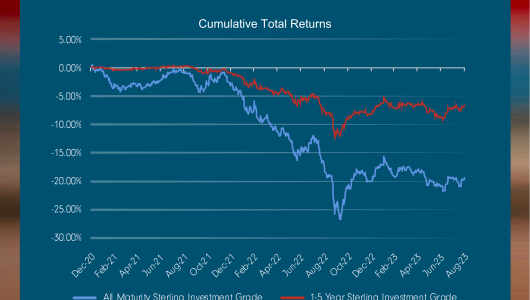A total of 369,000 people paid £14.4bn in capital gains tax in 2022-2023, new figures from HMRC have revealed.
This represents a 15% decrease compared to the previous year, but is still the third highest tax bill since 1998.
The fall is being put down to a difficult year for stocks and shares investors, because during the year CGT from sales of property rose.
London and the south east accounted for almost half of all gains and CGT paid.
In the 2022 to 2023 tax year, 41% of CGT came from those who made gains of £5m or more, despite this group representing less than 1% of CGT taxpayers each year.
The most common age to pay CGT is 55-64, and the most CGT is paid by those aged 45-54.
Sarah Coles, head of personal finance at Hargreaves Lansdown, said: “In 2022/23 we paid less capital gains tax, after global stock markets lost around a fifth of their value during 2022.
“Yet investors still paid a massive £14.4bn in CGT and that’s set to rise, because from this point, the annual tax-free allowances faced horrible cuts.
“The way that the hike in CGT has worked so far has hit smaller investors harder, because the allowance used to cover a much larger proportion of their gains.
“If there’s a wholesale rise in rates, it will damage investors across the board.
“As we head to the Budget in October, speculation is only going to mount that the government could see capital gains tax as a possible cash cow, so it’s worth considering what we can do to protect ourselves.”
“There was a stark drop in the amount of CGT collected from individuals making gains of more than £5m,” said Tim Stovold head of tax at Moore Kingston Smith.
“The tax collected on the large windfalls dropping nearly £1.5bn to £5.6bn.
“The CGT collected is still small when compared to the big three of income tax, national insurance and VAT – but still attractive for the chancellor to try to squeeze more from those making gains.
“The chancellor should be mindful that the CGT collected is heavily influenced by those making the largest capital gains.
“With so much tax at stake, leaving the UK to realise their gains in a lower tax territory could start to look like an attractive option for people with the most to lose.”















Part dwindling alternatives given the pre election pledge on VAT, Income, & NI, and part not a ‘class traitor, CGT looks vulnerable to a wider and more costly net being thrown on 30th October next.
Mind, the Tories set the scene for masses paying up… hugely cutting the allowance rather than increasing the rate, so protecting the biggest profiteers vs the household holdings…
This, along with dividends being treated almost like earned income, shows the disregard for risk and necessary liquidity investors take/inject. I think, perhaps, gains from UK based investments might be treated less onerously then outside. So fitting in with ‘cash duty first into UK’ mumbo jumbo etc.
A 20% increase in capital tax nets – CGT & IHT, together with a 50% reduction/50% increase qualification in reliefs/allowances – CGT, B Relief, AIM, … would raise plenty and satisfy those baying for the non working people (?) to pay more…
When Marx and Engels penned their papers – see Livingstone & Corbyn missives – most capital in action was, literally, static… factories, docks, agriculture, – Tertiary industries like laundery, retail, clerical, grocery, information was also quite fixed, most of all capital itself was banked and buried – Gold standard don’t forget…
Today, the above is far from the real world…
If things become too onerous – 98% investment income surcharge – together with inability to meaningfully amortize or defer gains/profits… then those that can will leave or their capital will, those that cannot/prefer not to, will do nothing… except buy obscure assets which will not be sold… I said here a few days ago the path or whatever was back to 1977…
One aspect not mentioned much, was the birth and growth of the tax avoidance market – Rossminster for one – despite DOTAS, expect to see a big increase in structured products – under the Teflon Twins more was made out of ‘Cool Britannia’ than any Tory No.11!
This seems to highlight 2 points:
1. Property is really not a very good investment. Recent legislation doesn’t help. Those on Buy to Let have to charge high rental fees to cover mortgage, legal, maintenance costs and then pay CGT when they sell – a pretty lousy return.
2. For many of the others who have invested in equities, one may ask why they didn’t use ISAs? PEPs started in 1987, then we had single company PEPs in addition, then TESSAS and ultimately ISAs. That left plenty of scope. Then if you sold your business, you could claim Entrepreneurs relief. (10% CGT). That just leaves the rump who couldn’t manoeuvre. For example, those employees with share bonuses etc. For the really rich, plenty of planning available if they used other jurisdictions. I didn’t see Phillip Green pay much CGT.